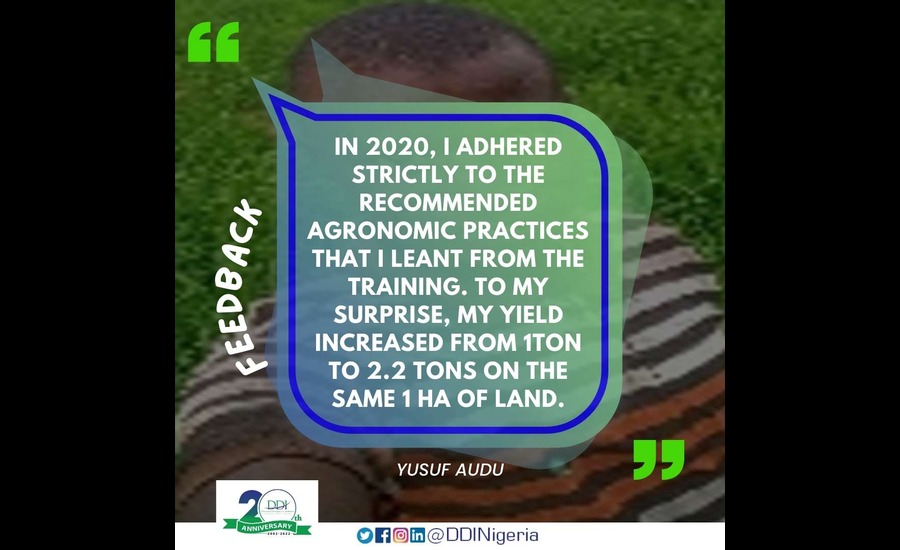Yusuf Audu is a member of Hebda Heba producer group in Girei LGA of Adamawa State. Yusuf Audu is a dedicated rice farmer. He had been producing 1ha of rice but has never got up to 1 ton per hectare. Just like Ibrahim Idris in Yobe State, Yusuf was amazed at the kind of yield he got from his rice farm when he adopted recommended agronomic practices for rice production.
As a member of the producer group, Yusuf Audu participated in Best Agronomic Practices training of the STaR project in 2020 where he was taught the recommended practices for the production of rice. During the 2020 farming season, he adhered strictly to the recommended agronomic practices that he leant from the training. To his total surprise, his yield increased from 1ton to 2.2 tons on the same 1 ha of land. In 2021, he introduced the use of Albit organic plant growth regulator, in addition to other recommended agronomic practices, and his yield increased to 3.1 tons per hectare.
“ba Albit ba gona” (i.e. no Albit no farm) was Yusuf’s remarks when the STaR Project staff visited him to ascertain his experience on the project. Yusuf is already looking forward to increasing the size of his farmland to 2 hectares in 2022.
Background:
Supported by Germany’s KfW Development Bank and focused on economic revitalization, infrastructure, social cohesion, and governance., the 94million Euro agriculture and livelihoods intervention in Borno and Adamawa States aims at contributing to stabilization and reconciliation in the most affected regions of the Lake Chad crisis (Borno and Adamawa States in Nigeria, Diffa in Niger, and Lake Chad) by creating new employment and income opportunities. Some of the core objectives of the STaR project include financing improvement of productive social infrastructure and services, creating new employment and income opportunities, strengthening social cohesion; and supporting local governance capacity building. The STaR project is contributing to this stabilization and reconciliation by financing the improvement of productive social infrastructure and services (implemented by Catholic Relief Services – CRS); creating economic revitalization through agriculture and livelihoods interventions (implemented by Diamond Development Initiatives – DDI); savings and internal lending communities (implemented by Justice for Development and Peace Commission – JDPC); strengthening social cohesion (implemented by CRS); and supporting local governance capacity building (implemented by Federation of Muslim Women’s Associations in Nigeria, FOMWAN)

